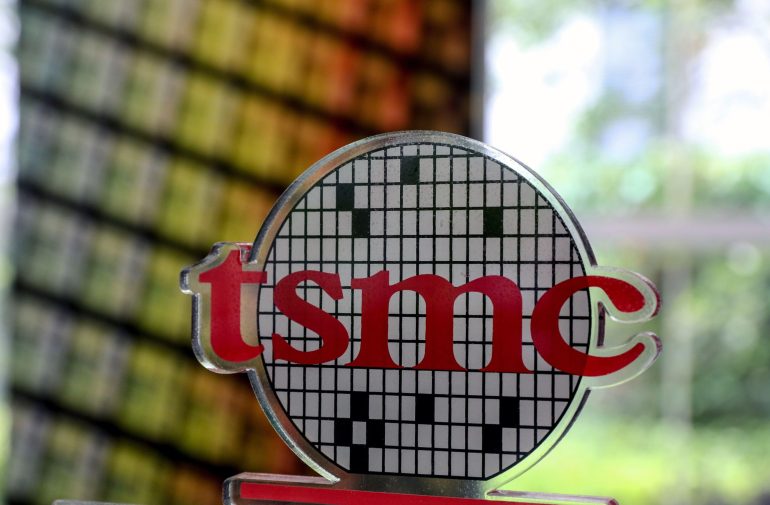- Chinese AI chip makers adjust designs to comply with US chip export regulations, submitting modified designs to TSMC.
- MetaX develops C280 GPU for TSMC production after stocks of advanced C500 chips run out.
- Bureau of Industry and Security’s rules ban shipment of chips meeting certain performance metrics to China, impacting Nvidia’s A800 and H800 chips.
- MetaX’s C500 chip falls between Nvidia’s A100 and A800 in performance metrics, raising compliance concerns.
- Despite option to engage SMIC for production, prioritization of Huawei limits MetaX’s alternatives.
- Nvidia delays launch of H20, L20, and L2 AI chips for Chinese market to 2024 due to US export controls.
- Pre-orders for H20 chips initiated in March; Alibaba secures over 30,000 units, leading to market discounts.
- Jensen Huang’s diplomatic remarks during Taiwan visit aim to ensure uninterrupted chip production, amidst geopolitical tensions.
Main AI News:
Shanghai-based GPU designers, MetaX and Enflame, strategically adjusted their chip designs to align with the stringent chip export regulations imposed by the United States in October. According to Reuters, both companies submitted modified chip designs to Taiwan Semiconductor Manufacturing Co (TSMC) in late 2023 to ensure continued production access.
MetaX, faced with depleted stocks of its advanced C500 chips, pivoted to developing the C280 GPU specifically for TSMC production, underscoring the necessity for compliance with U.S. export guidelines. While TSMC assured adherence to relevant jurisdictions, doubts linger regarding the commencement of mass production for MetaX’s C500 chips.
Asia Times’ research reveals MetaX’s progress on the C500 chips halted after basic testing in June last year, potentially disrupted by U.S. restrictions. The Bureau of Industry and Security’s rules, disclosed on October 17 last year, stipulated a ban on shipping chips with specified performance metrics to China, affecting shipments of Nvidia’s A800 and H800 chips. Notably, MetaX’s C500 chip falls between Nvidia’s A100 and A800 in performance metrics, further complicating export compliance.
Despite the option to engage Semiconductor Manufacturing International Corp (SMIC) for production, MetaX faces constraints due to SMIC’s prioritization of Huawei Technologies. The landscape intensifies as Nvidia navigates export controls, delaying the launch of its H20, L20, and L2 AI chips for the Chinese market to 2024.
In March, Nvidia initiated pre-orders for its H20 chips, with Alibaba securing over 30,000 units. However, abundant supply led to market discounts, positioning H20 chips competitively against Huawei’s Ascend 910B. Notably, performance differentials persist, with Tang highlighting H20’s capabilities at half the level of Ascend 910B.
As production shifts, SMIC now oversees the manufacturing of Ascend 910B chips, previously produced by TSMC. Despite this transition, analysts suggest continued import reliance on Nvidia’s AI chips due to SMIC’s limited 7nm production capacity.
Jensen Huang’s Diplomatic Stance in Taiwan
Nvidia’s CEO, Jensen Huang, recently made diplomatic waves during his visit to Taiwan, acknowledging its pivotal role in the global electronics industry. Huang’s characterization of Taiwan as a significant entity underscores its strategic importance, albeit amidst geopolitical tensions.
While Huang’s remarks drew attention, they did not elicit substantial backlash in China, despite recent military maneuvers near Taiwan. Analysts speculate that Huang’s comments aimed to placate Taiwanese stakeholders, ensuring uninterrupted chip production. Despite challenges posed by U.S. export controls, Nvidia remains committed to the Chinese market, prioritizing commercial interests amidst political sensitivities.
Amid speculation, Huang’s political acumen remains evident, steering clear of contentious Taiwan issues. Media scrutiny notwithstanding, Huang’s visit reinforces the intricate interplay between business and geopolitics, with implications extending beyond Nvidia’s commercial pursuits.
Conclusion:
The adaptations made by Chinese AI chip makers in response to US export controls highlight the intricate interplay between regulatory compliance and market dynamics. While efforts to align with regulations ensure continued access to critical production facilities, geopolitical tensions and market uncertainties necessitate a delicate balance between commercial interests and political sensitivities. This underscores the need for strategic agility and diversified production strategies to navigate evolving regulatory landscapes in the AI chip market.

